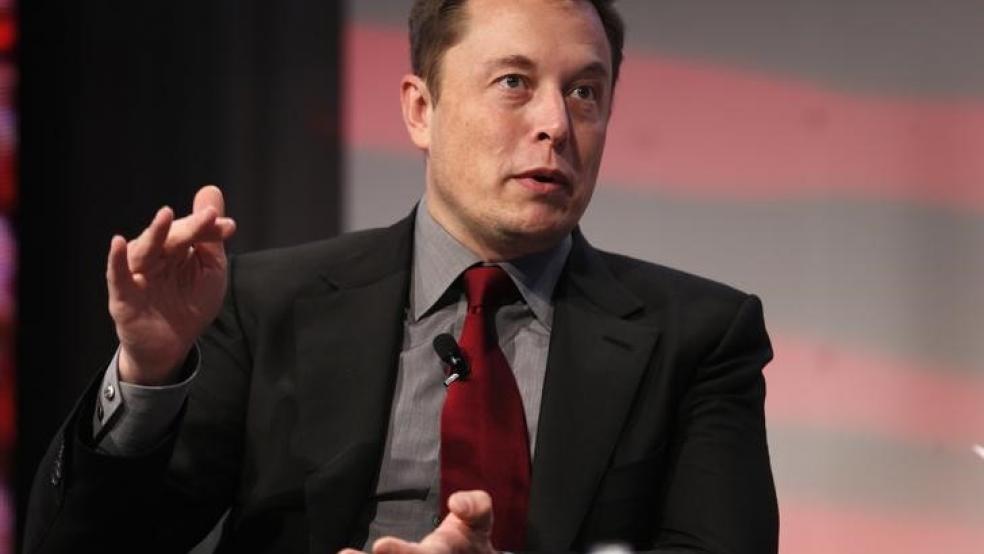Elon Musk is a genius and a visionary who is almost single handedly changing the future of mankind through three different industries at once. With that said, it’s not clear if investors can easily benefit from any of that.
Tesla, the company most associated with Musk is in a downward stock spiral over the last month which has taken it to new 52 week lows. There are many reasons for that downward spiral including concerns about market valuations and weak oil prices (which make Tesla’s correspondingly less attractive as a substitute versus conventional cars). But for the first time, Tesla is also facing a new threat that may be frightening away some investors; competition in the electric car space.
Related: Tesla Tries to Kick-Start an Energy Revolution
Tesla has been the only real electric car maker since its inception as a company. It’s true that Nissan offers the Nissan Leaf, an all electric car, but that vehicle only gets around a 100 miles of range, compared with 270 miles for a Tesla. For the many Americans that drive 50 miles each way to work or who sit in traffic at rush hour, a 100-mile range is simply too perilously close to running out of power for comfort. As a result, the Nissan Leaf has never really caught on with more than a sliver of the population.
To be fair of course, Tesla is still very much a niche car company. The firm produced about 50,000 vehicles in 2015 and it might make as many as 80,000-90,000 in 2016. Production is really the biggest issue right now for Tesla as it is quickly selling every car it can produce. And that is why investors have been comfortable with the story and given Tesla a stratospheric valuation compared with traditional car companies. Simply put, Tesla is making a cool car that nearly everyone would like to buy and it is selling product as fast as it can produce it. Unfortunately for most people, Tesla’s cars are too expensive so far. Tesla is promising to start production on its much vaunted Model 3 in 2017, but it is very possible that production will end up getting pushed back.
Related: What Tesla’s Home Battery Means for Your Electric Bill
The Model 3 is particularly important because it is supposed to be Tesla’s first mass market car with a stick price around $35,000. It’s unclear if Tesla really needs to produce the Model 3 – after all Ferrari and Porsche have long had great businesses despite selling only luxury sports cars. Yet the Model 3 represents Tesla’s chance to grab a large slice of the American car market and become a true competitor in that space. That is, as long as someone else doesn’t get there first – and therein lies the problem and perhaps the reason for Tesla’s sharp share price decline in recent weeks.
It now appears that General Motors rather than Tesla will be the first company out with a tractable mass market electric vehicle. The Chevy Bolt is set to start production by the end of 2016 with a sticker price of around $30,000 (after $7,500 in Federal rebates and incentives) and a range of roughly 200 miles. While that range is still not as high as Tesla’s range, the sticker price is a lot lower. Moreover, GM has the capacity to make hundreds of thousands of cars if the demand materializes. That prospect has to be making Tesla nervous.
For all of Elon Musk’s remarkable achievements with Tesla, the company is still very much an upstart. Making cars en masse is difficult, and the General Motors and Fords of the world have been doing it for a long time. Tesla’s biggest advantage was the lumbering nature of traditional automakers and their difficulty in producing a truly revolutionary new vehicle. Only time will tell if GM has succeeded on that front, but for the first time it does look like Tesla might face some real competition.
This article originally appeared OilPrice.com. Read more from OilPrice.com:
U.S. Rig Count In Free Fall: Plunges By 48 In One Week
Obama Proposes $10 Tax On Each Barrel Of Oil
Despite Bold Predictions, T. Boone Pickens Sells All Oil Holdings




